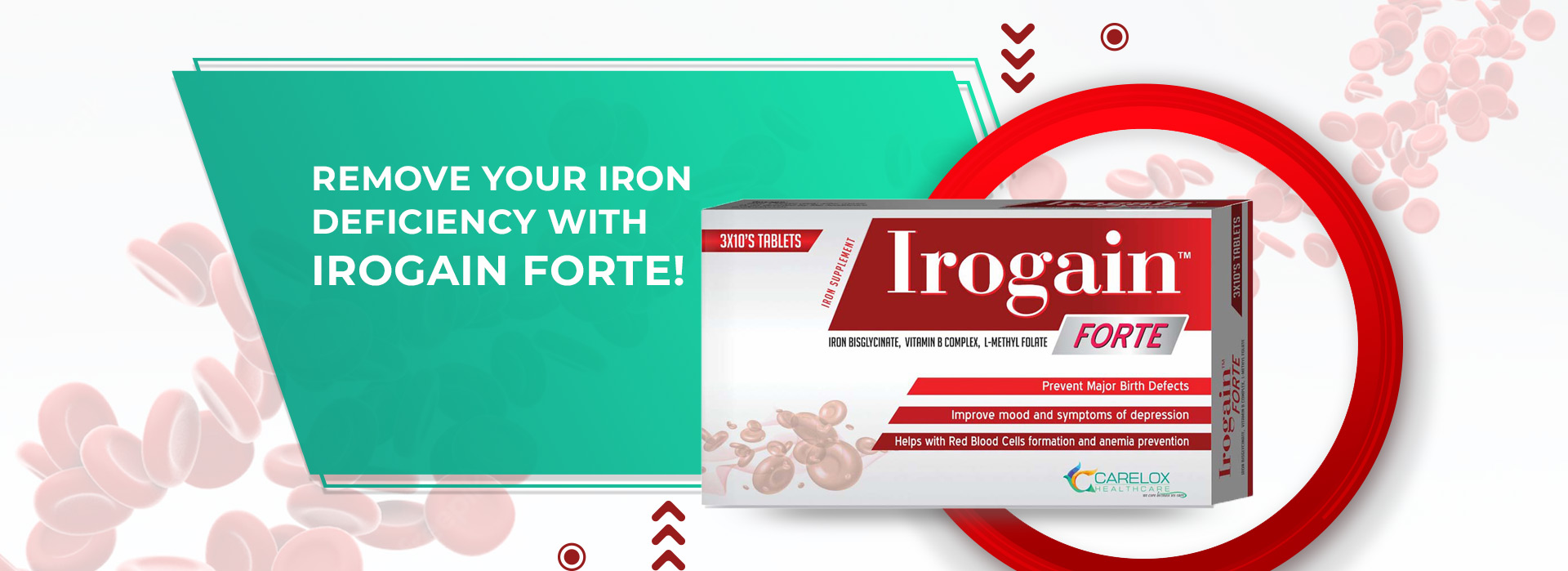




This combination product contains a mineral (iron) along with vitamins B complex and L- Methyl Folate. It is used to treat or prevent a lack of these nutrients which may occur in certain health conditions (e.g., anemia, pregnancy, poor diet, surgery recovery). Iron is an important mineral that the body needs to produce red blood cells. Vitamin B complex play an important role in supporting a healthy pregnancy.L-Methyl Folate is needed to form healthy cells, especially red blood cells.
Iron bisglycinate is a chelate that is used as a source of dietary iron. Forming a ring structure when reacting with glycine, Iron bisglycinate acts as both a chelate and a nutritionally functional . It is found in foods for food enrichment or in supplements for the treatment of iron deficiency or iron deficiency anemia.
Maintaining a well-balanced diet is one of the best things you can do for your body. This is especially true when you’re pregnant. Foods rich in the B vitamins (known as B complex) play an important role in supporting a healthy pregnancy.
Vitamin B-1: Thiamine
Vitamin B-1 (thiamine) plays a huge part in your baby’s brain development. Pregnant women need about 1.4 milligrams of vitamin B-1 daily.
Vitamin B-2: Riboflavin
Like all B vitamins, B-2 (riboflavin) is water soluble. This means that your body doesn’t store it. You must replace it through your diet or prenatal vitamins.
Riboflavin keeps your eyes healthy and your skin look glowing and refreshed. Pregnant women should take 1.4 mg of riboflavin daily.
Vitamin B-3: Niacin
Vitamin B-3 (niacin) works hard to improve your digestion and nutrient metabolism. Doctors recommend that pregnant women take 18 mg daily.
Vitamin B-6: Pyridoxine
Vitamin B-6 (pyridoxine) plays a part in your growing baby’s brain and nervous system development. It also is vital for producing norepinephrine and serotonin. These are two important neurotransmitters (signal messengers). Pyridoxine can help ease pregnancy symptoms of nausea and vomiting.
Vitamin B-7: Biotin
The recommends a daily intake of 30 mcg of vitamin B-7 (biotin) during pregnancy (35 mcg for breastfeeding women). Pregnancy can often cause a biotin deficiency. So, make sure you’re getting enough.
| Vitamin | Benefit | |
| B-1 (thiamine) | plays a big part in your baby’s brain development | |
| B-2 (riboflavin) | keeps your eyes healthy, and your skin glowing and fresh | |
| B-3 (niacin) | improves digestion and can ease morning sickness and nausea | |
| B-6 (pyridoxine) | plays a big part in your baby’s brain and nervous system development | |
| B-7 (biotin) | pregnancy can cause biotin deficiency, so increase your intake | |
Folic acid is the man-made form of folate. Folate is a B-vitamin naturally found in some foods. It is needed to form healthy cells, especially red blood cells.
Folic acid supplements may come in different forms (such as L-Methyl folate). L-Methyl folate is a 3rd generation of folate. They are used to treat or prevent low folate levels. Low folate levels can lead to certain types of anemia. Conditions that can cause low folate levels include poor diet, pregnancy, alcoholism, liver disease, certain stomach/intestinal problems, kidney dialysis, among others. Women of childbearing age should receive adequate amounts of folate either through their diet or supplements to prevent infant spinal cord birth defects.
